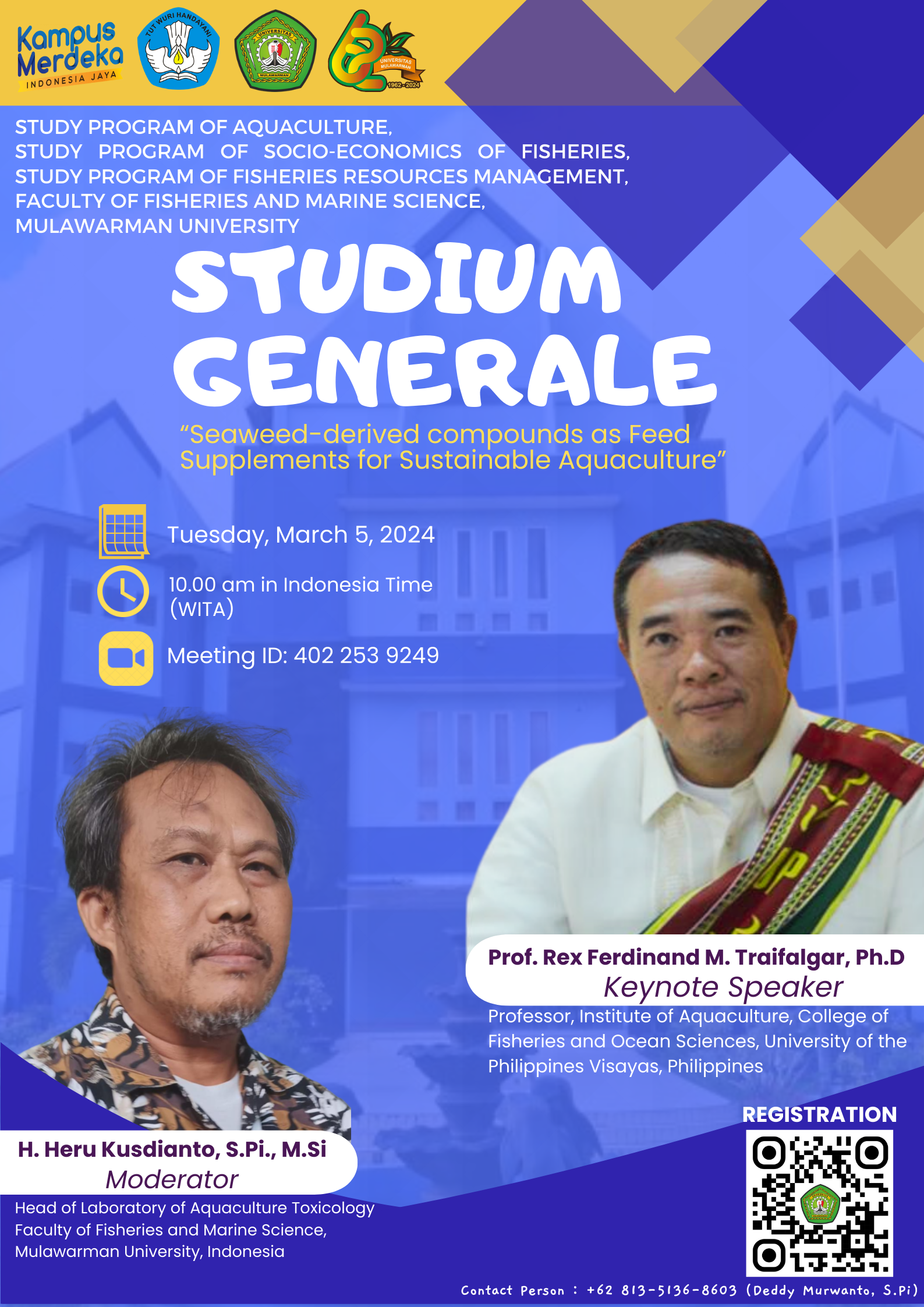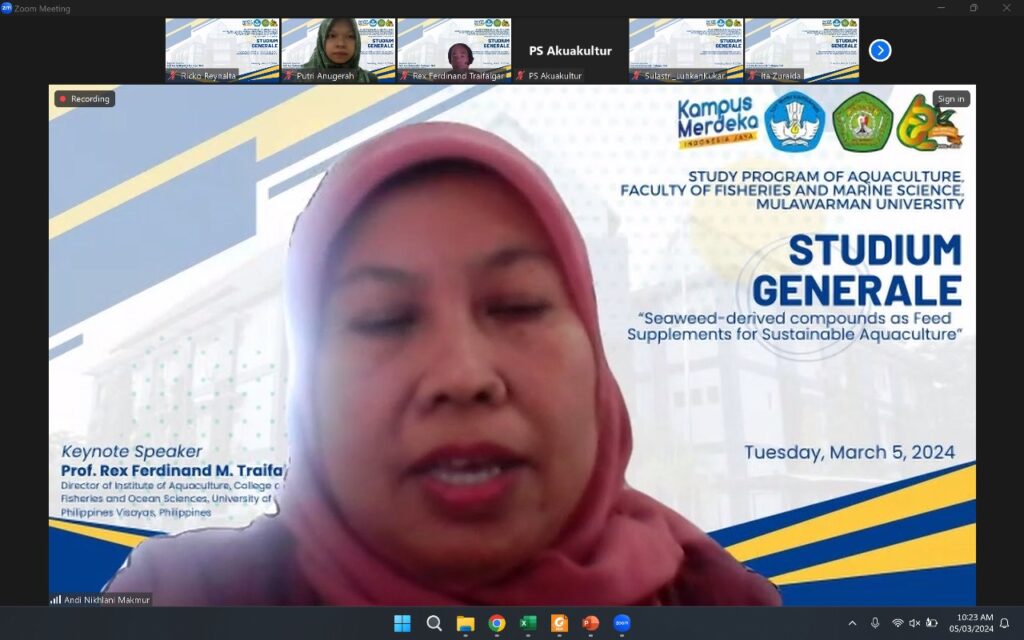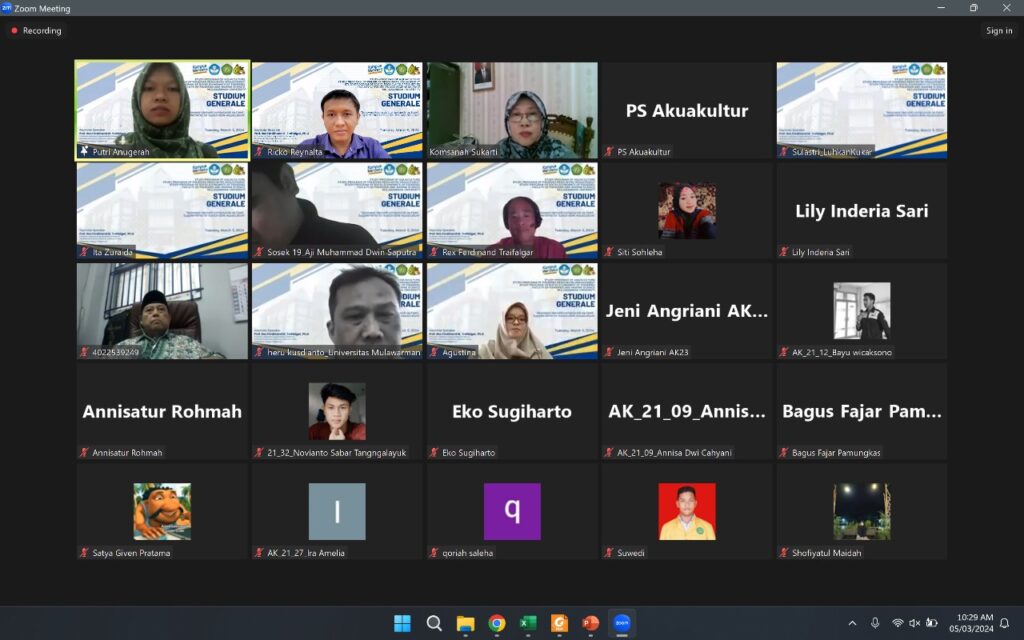The Aquaculture Study Program organized an online Public Lecture via Zoom on Tuesday, March 5, 2024. The lecture carried the theme “Seaweed-Derived Compounds as Feed Supplements for Sustainable Aquaculture” and featured a guest speaker from the Institute of Aquaculture, College of Fisheries and Ocean Sciences, University of the Philippines Visayas — Prof. Rex Ferdianand Traifalgar, Ph.D.

Here’s a translation of the text you provided, keeping the original phrasing and flow:
“Give a man a fish and you feed him for today; teach a man about fish, and you feed him for a lifetime.” This opening statement was delivered by Prof. Rex at the beginning of his public lecture. In this general lecture, Prof. Rex explained that some high-protein raw materials that can be given to aquaculture organisms include the seaweed species Gracilaria ulva.
Gracilaria is an alternative raw material for fish feed. It is a type of red alga that grows rapidly, has a high protein content, is easily digestible by organisms (its protein digestibility reaches 90%), and can replace soybean meal in feed formulations.

Bioactive compounds in seaweed (Polysaccharides) as feed additives: The polysaccharides found in seaweed have significant bioactive potential as feed additives for fish or shrimp. Some reasons why polysaccharides from seaweed are often used as feed additives.
Energy Source: Polysaccharides are a crucial primary energy source in aquatic organism feed, readily digestible and utilized by aquatic animals as a carbohydrate source, providing the necessary energy for growth and metabolism.
Rich in Nutrients: Polysaccharides from seaweed contain various essential nutrients such as fiber, vitamins, minerals, and antioxidants. Adding these polysaccharides can increase the nutritional value of feed and support the health and growth of fish and shrimp.
Digestive System Regulation: Polysaccharides can play a role in improving the digestive system health of aquatic organisms by increasing the activity of positive microbes in the gut, which can ultimately enhance nutrient digestion and absorption.
Immunity and Health: Some polysaccharides from seaweed have been shown to have immunomodulatory effects that can boost the immune system of organisms, helping to fight off infections and diseases.
Gut Microbiota Balance: Polysaccharides can influence the balance of gut microbiota in fish and shrimp, which can impact overall health and feed efficiency.
The use of polysaccharides from seaweed as feed additives in animal feed has garnered interest in the fisheries industry due to their potential benefits for the health and performance of fish and shrimp, as well as resource sustainability.



